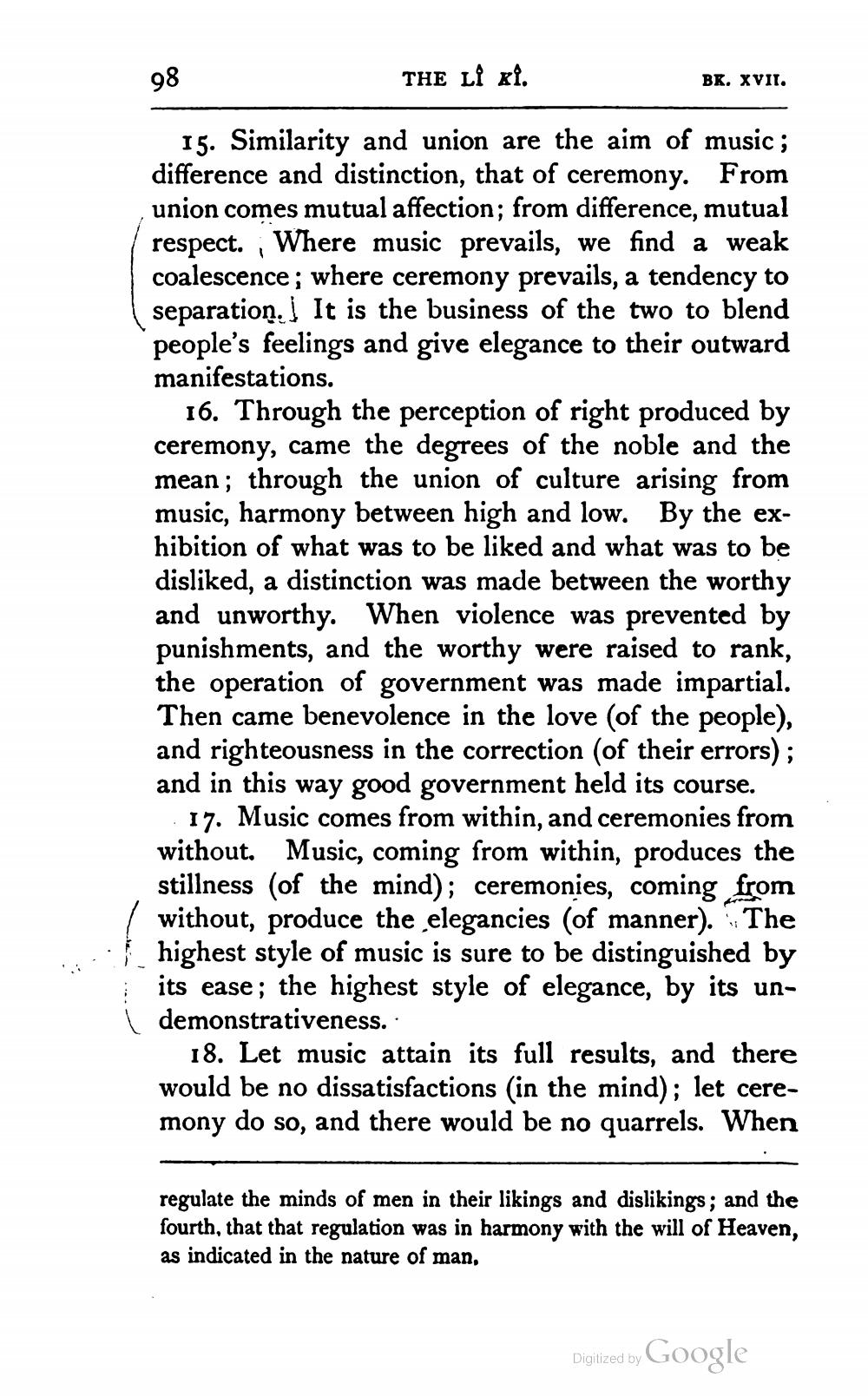________________
98
THE LÎ kt.
BK. XVII.
15. Similarity and union are the aim of music; difference and distinction, that of ceremony. From union comes mutual affection; from difference, mutual respect. ; Where music prevails, we find a weak coalescence; where ceremony prevails, a tendency to separation. It is the business of the two to blend people's feelings and give elegance to their outward manifestations.
16. Through the perception of right produced by ceremony, came the degrees of the noble and the mean; through the union of culture arising from music, harmony between high and low. By the exhibition of what was to be liked and what was to be disliked, a distinction was made between the worthy and unworthy. When violence was prevented by punishments, and the worthy were raised to rank, the operation of government was made impartial. Then came benevolence in the love (of the people), and righteousness in the correction (of their errors); and in this way good government held its course.
17. Music comes from within, and ceremonies from without Music, coming from within, produces the
stillness (of the mind); ceremonies, coming from I without, produce the elegancies (of manner). The
highest style of music is sure to be distinguished by its ease; the highest style of elegance, by its undemonstrativeness."
18. Let music attain its full results, and there would be no dissatisfactions (in the mind); let ceremony do so, and there would be no quarrels. When
regulate the minds of men in their likings and dislikings; and the fourth, that that regulation was in harmony with the will of Heaven, as indicated in the nature of man,
Digitized by Google




